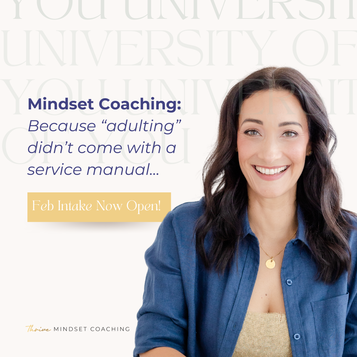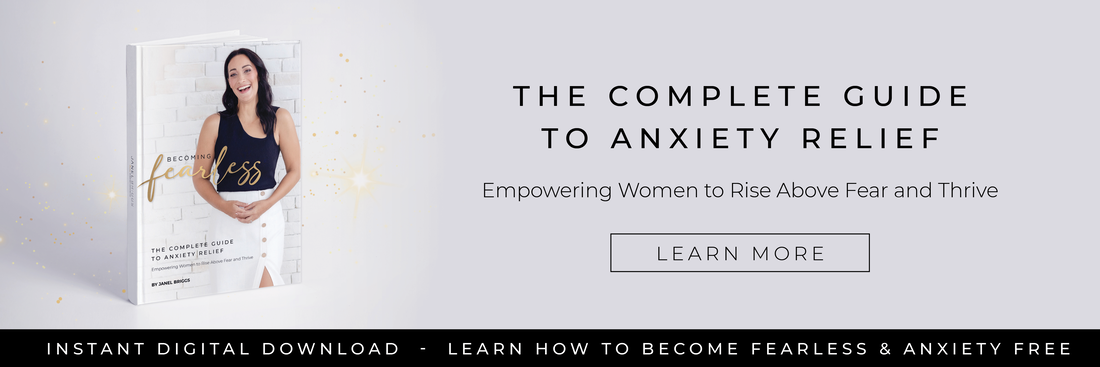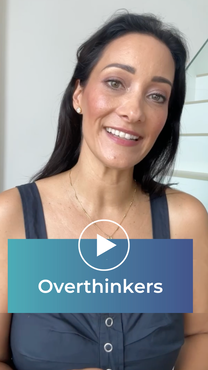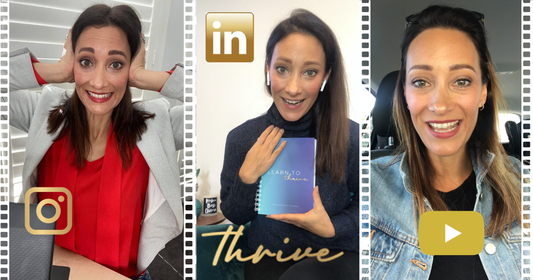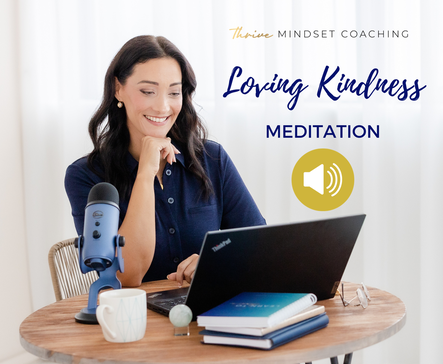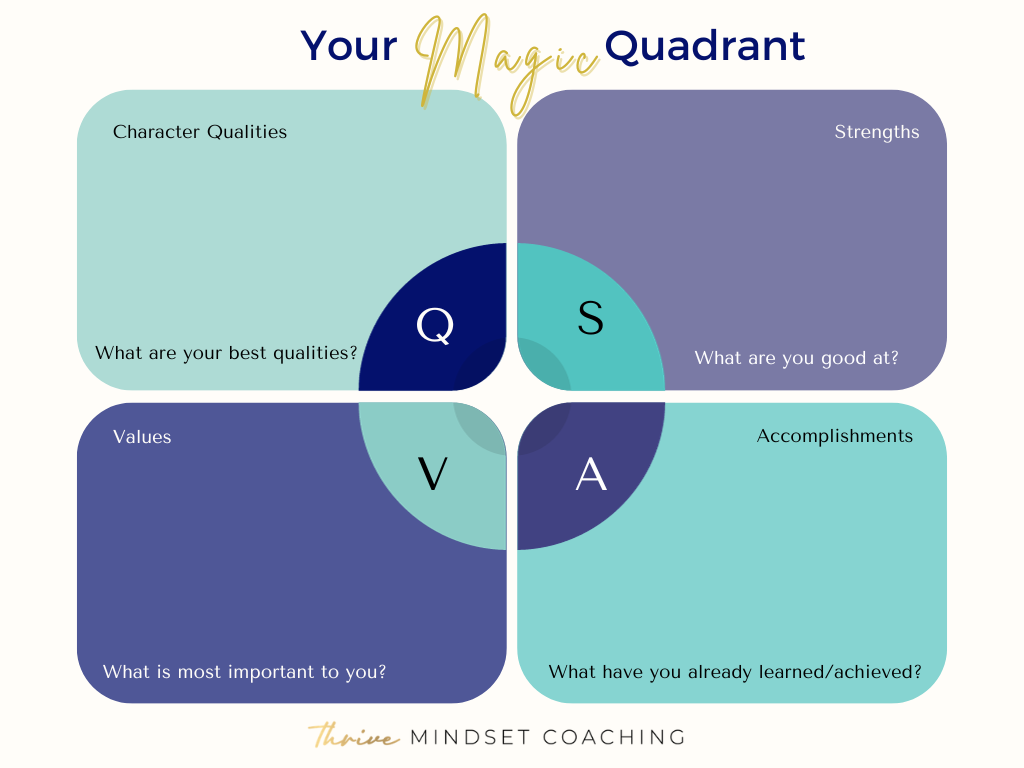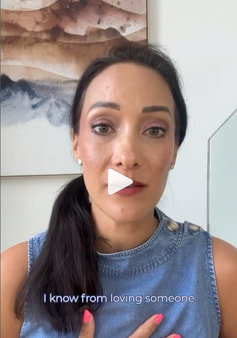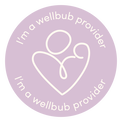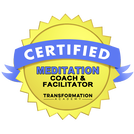AuthorJanel Briggs Categories
All
|
Back to Blog
In January you'll usually find me spending a lot of time over on LinkedIn. Honestly I love nothing more than seeing all the women making career moves and job changes with the fresh start of a new year. Women being celebrated for taking bold leaps into the new and unknown, brings me joy. I understand just how much anxiety and overwhelm arises when making a decision to change jobs, a career or industry. And how important it is to BE in the right mindset to make those big life decisions feel less daunting. People in general are known to struggle with making decisions and find it all very extremely overwhelming. Studies show that this is because we are creatures of habit, hesitant to step out of our comfort zones. When it comes to wading into the unknown we're wired to fear “losses” (what if it doesn’t work and I can’t go back?) more than we value potential “gains” (all the potential possibilities!). When our emotions (like fear, frustration, guilt, resentment) jump in the driver’s seat and dictate our decisions this can lead to several unhelpful roadblocks:
How do you face big life decisions with less overwhelm?Here's my quick 3 step strategy... you won't be surprised it's about clearing your mindset first! 1. DON’T make the decision from an emotional place For example:
Find ways to first calm your mind, process those emotions, get some rest and nourish yourself first. I promise the decision will come so much easier! 2. DO write your pro’s and con’s list
3. DO align your decisions with your values
Fear of making the wrong decision may be knocking on your door, but don't allow it be the reason you decide not to do something. Follow this strategy and take 5 seconds of courage to unlock the possibilities that are awaiting you! I would love to know - if you've been thinking about taking a leap recently, what's holding you back?? Shoot me an email [email protected]! And if we haven't yet connected on Linkedin - you can find me here JANEL BRIGGS  About the Author: Janel Briggs is an Author, Mindset Coach, Practitioner of NLP and Timeline Therapy on a mission to support women across the world in overcoming their anxiety - personal insecurities and professional fears - to build unwavering confidence and self-belief. Mindset Coaching aims to help you fearlessly elevate your life and career, and more importantly the relationship you have with yourself! Connect with Janel on social media via Linkedin or Instagram.
0 Comments
read more
Back to Blog
Busting the Vicious Cycle of Self-Doubt29/1/2024 How you shut down the nagging voice of self-doubt that questions your cabilities, worth and decisions when she shows up? As people return to work in January a common theme I hear from clients after a period of “time off” is that this is when the self-doubt begins to sneak in (again). Whispering those negative thoughts and planting seeds of insecurity. When stop and take time off the work-life busy rat race, it can be hard to get back on it. Specifically when self-doubt is a pattern of thinking has become a comfortable habit; a habit that doesn’t serve you. But where does this self-doubt come from? Understanding the Roots Often its rooted in past experiences, societal expectations, or comparisons we have and make with others. The first step to relieving self-doubt is to recognise the thought patterns and honestly understand that your worth isn’t defined by external factors. The Mindset Coaching Approach Once you notice the pattern it’s crucial to break the cycle of thought that is constantly questioning your capabilities and decisions. But how do you do that? You've got to explore it: Q: What are you doubting? Q: Why are you doubting yourself and your capabilities? Q: If doubt wasn’t holding you back what would you be doing, believing or feeling? Rewrite the Negative Narrative Then tap into the positive thought spectrum that is already within each one of us. The simplest coaching tool I can share with you is - using Positive Affirmations - to rewire your mind's thoughts from words of DOUBT to self-BELIEF. Affirmations are positive statements that you repeat to yourself regularly to challenge and overcome self-sabotaging and negative thoughts. They act as a reset buttong for your mind. By consistently repeating the same phrases, you're rewiring your brain to focus on your strengths rather than weaknesses. They’re like a daily dose of inspo for your soul really, that reshapes your mindset. I’ve been using affirmations daily in my own life since 2017, and it’s the number one reason why I created Learn to Thrive Morning Journal. Affirmations helped me in my darkest days, battling anxiety and crippling self-doubt to remember that “Today and every day I am enough”. Instead of waking up every day and listening to all the negatives your mind wants to throw at you… all the “I cant’s” and “I dont’s” or “not enough’s” you take charge and affirm your worth, strength and capabilities. This tool when practiced consistently helps your mind in 3 ways:
Crafting Your AffirmationsThere are a few things to remember when crafting your own positive affirmations. They need to be short impactful statements focusing the mind on what you want. BE Positive and Present: Affirmations should be written or spoken in positive present tense verbage, avoiding negative words. Refrain from using words like not, dont, wont which all have a negative connotation. For example, "I am confident and capable" instead of "I will NOT doubt myself". BE Specific: Steer clear of generic statements, be specific about the qualities, attributes or goals you want to bring into your life and focus on. For example, "I am capable of handing any challenges that come my way today" instead of "I am resilient". Be Repetitive: The power is in repetition. Read, write, speak the same affirmations for at least 60-90 days. Let them become your mantra that propels you forward. Watch as your belief in these affirmations grows. If you're new to this practice download a copy of my free affirmations list and let that be your guide. Every Monday over on Instagram I help kick off your week with 5 Positive Affirmations ...(watch this and save for later!) The Mindset Shift Lastly, we need to dream bigger and bust any roadblock to the amazing life and career you are here for! Ask yourself: Q: What is doubt truly holding you back from? Q: If you assumed you had the skills, resources and resilience… what would change for you? Q: If doubt wasn’t in the picture, what could become possible for you? You mind is a powerful force. When you fill it with positive thoughts, your life will start to change. Above all else... just be kind to yourself.  About the Author: Janel Briggs is an Author, Mindset Coach, Practitioner of NLP and Timeline Therapy on a mission to support women across the world in overcoming their anxiety - personal insecurities and professional fears - to build unwavering confidence and self-belief. Mindset Coaching aims to help you fearlessly elevate your life and career, and more importantly the relationship you have with yourself! Connect with Janel on social media via Linkedin or Instagram.
Back to Blog
If you’ve ever found yourself waking up feeling on-edge, super anxious, worrying about something you might have said or done after a night out of fun and drinking, rest assured - you're not alone. 'Hangxiety' is a common experience shared by many women, so I want to help you understand the cause better to so you can manage through it and breathe easier this holiday season! Our Body + AlcoholThe science behind 'hangxiety' is rooted in the intricate workings of our brains when alcohol is consumed:
If you’re interested in learning about how alcohol + sleep affect anxiety I cover this topic in detail in my new book “Becoming Fearless” – The Complete Guide to Anxiety Relief along with 12+ anxiety relief tools! Women vs Men’s 'Hangxiety'Women tend to metabolise alcohol differently to men due to differences in body composition and our enzyme levels. This can result in a quicker rise in blood alcohol concentration while drinking and intensify both the initial “calming effects” and subsequent “glutamine rebound” = anxiety. Women who are already prone to anxiety are more susceptible to experiencing intensified 'hangxiety' after drinking. Reason being - our body’s anxiety alarm system is super in tune with hormone fluctuations and likely in a pattern of triggering to negative or worried thoughts! How to Cope with Post-Drinking Anxiety The duration of the ‘hangxiety’ feeling will vary person to person, typically peaking the day after and lasting up to 24 hours or longer, depending on factors like how much alcohol you drank and physical/emotional/mental conditions (aka if you’re in a high stress period/already anxious mindset then look out - symptoms will be intensified!). Waking up with fragmented memories from the previous night can also contribute to post-drinking stress of course. Dealing with 'hangxiety' requires a high level of self-compassion. This is where you need to remind yourself -
Do something to distract and relax your mind, such as watching a favourite show or practicing mindfulness through meditation, aids in easing 'hangxiety.' And avoid consuming more alcohol or stimulant’s like coffee, which can just exacerbate anxiety. ‘Hangxiety’ PreventionIf you want to prevent 'hangxiety' it will involvessome moderation and mindful drinking and I also believe assessing where you’re at emotionally and mentally before you drink is key.
By understanding how the body works and the triggers, and implementing a few preventive measures and coping strategies, I hope 'hangxiety' won’t overshadow this year’s festive cheer for you!
Back to Blog
This one is for all the Overthinkers13/11/2023 Do you ever find your mind spinning about all the “what if’s” and the “unknowns” within a problem or situation and you just can’t seem to shut those damn thoughts off? Overthinking is something that happens to the best of us, and it’s a sure-fire trigger for anxiety. It’s kind of like there’s a dance party going on in your mind with all these thoughts on a wild and random playlist. You’re expecting “Sunday Chill” and get delivered “Hard Rock Hits of 1990”. YIKES! When things get too chaotic, we often forget that we are the DJ of the crazy party going on in our mind. We can take control of the playlist, even if the volume of the music feels a little loud and out of our control. We can dial it down. But how? This week, perhaps start by recognizing when you are overthinking and practice interrupting the pattern of thought. Instead of feeding the train of thoughts with MORE questions and scenarios on the overthinking train, try to disrupt the flow and change the tune. Here is a recent video I did for my overthinkers on Instagram which will help! Overthinking is very common in women who experience anxiety. In fact I’ve dedicated a whole chapter to understanding “why we overthink” in my new book, Becoming Fearless launching next Tuesday Nov 21. Here is a sneak peak of some things I share that can help to quiet down the internal noise:
It takes practice, but honestly from experience there is no amount of rehashing a problem that will help find a resolution in THAT moment if you’re anxious. When our thoughts are like a loud party, then we don’t have space to listen to our inner voice of intuition who is trying to give us advice! Shift focus and come back to it at another time. This is your reminder:Sometimes we have to let go of the problem before we can figure it out. The same thinking that got us into the problem, won't always get us out of it! Ps. You can learn more about Becoming Fearless here and jump on the waitlist to get a copy. It's packed full of actionable tips and tools to help you relieve anxiety, naturally!
Back to Blog
Worrying is Pointless6/11/2023 A simple idea to help you stop worrying.I meet many women who are stuck in what we call in coaching “worry loops”. Where the mind becomes fixated on all the negative what IF’s within a situation. And one worry thought leads to another and another! Once you’re in a worry loop it can be hard to take yourself off the worry train. But here are 4 reasons why I believe worrying is pointless: 1. Worrying doesn’t change the outcome If you think about it, have you ever altered the course of an event by spending all that energy worrying? Probably not. So why do we waste so much precious energy on it? 2. It robs you of the present moment Life’s most beautiful moments are happening right now. When you worry you miss out on “being present” and all the fun, connection and beauty that’s around you. 3. Worrying zaps your confidence and inner peace It’s like carrying a massive problem sack with you everywhere you go. It holds you back and keeps you from showing up as your best self. 4. Worrying is a MASSIVE trigger for ANXIETY! What IF’s and worst-case scenarios type thoughts are a red flag for the mind to trigger anxiety alarm in the body and send out the troops to fight the “perceived danger”. Insert >> sleepless nights, mental and physical exhaustion, MORE racing thoughts and all those annoying anxiety symptoms. It's super important for me to share that you can stop the worry train.It's possible, perhaps this week if worry is at the forefront of your mind you can start here:
Step 1 - Become aware of when your mind is drifting to worry. Step 2 - Take a breath and remind yourself that this train of thought is essentially pointless, you cannot control all the “what IF’s” and this thinking will lead to anxiety. Step 3 - Let it go, not every detail has to be decided today. Practice bringing your mind back to the present moment. It's crucial to remember that worrying drains your precious energy and robs you of the beauty of the present moment! What's more important? By recognizing the pointlessness of worrying, you can be more proactive about your anxiety. Janel Briggs Thrive Mindset Coaching ps. Look out for a special announcement from me tomorrow 07-11-23! Jump on my EMAIL LIST and be the first to know! Something new is coming 😊 (hint: to help you off the worry train!).
Back to Blog
Wow - it's a big Mindset Monday for me. Celebrating 5 years of Thrive Mindset Coaching! It blows my mind that I have been helping women to transform their mindset and their lives (busting fear and anxiety) for five whole years. This has by far been the most rewarding career I’ve ever had. But it wasn’t something I planned, I literally fell into it after my own life was transformed by an NLP trained mindset coach. 5 years ago, I met a woman who breathed life into me. She showed me I was deserving and worthy of so much more than I was showing up for in my life. She saw a light in me that I didn’t even know existed. My light had been dimmed to dark for so long from “just surviving”. All it took was for 1 person to say “I believe in you, your story can help people” for me to wake up. People (friends and family) probably thought I was crazy; in the 3 years prior to launching Thrive Mindset Coaching, I had quit my lucrative 15-year corporate career and built 3 online businesses that were all flailing... along with my anxiety and mental health. Plus, back then no one even understood what a mindset coach was or did! You want to be what… um ok are you sure?? Early days finding my feet on Instagram Linkedin and You Tube. But, no matter what people thought or said I couldn’t shake the burning desire in me to help support people. To pay forward the gifts of knowledge, belief and hope I had been given. That is why this milestone feels so incredible. As a person who often gave up when conditions weren’t perfect or if the voice of my inner critic told me I was going to fail. “Who are you to do this work? You’re no expert! Your life isn’t perfect.” I NEVER gave up! 5 Valuable Lessons Learned in 5 Years of Coaching:
To my incredible coaching clients, every course participant, journal customer, workshop attendee and my tribe over on Instagram, Linkedin and Facebook - thank you for every video you watched, post or blog you've read! Your presence means the world to me. Cheers to the next 5! Janel Briggs.  About the Author: Janel Briggs is a NLP and Timeline Therapy Practitioner on a mission to support women across Australia and Singapore in overcoming their professional anxieties, imposter syndrome, fears and insecurities to build unwavering confidence and self-belief. Mindset Coaching is about learning how to become fearless and level up your life and career! Connect with Janel on social media via Linkedin or Instagram. Subscribe to my weekly Monday Mindset Magic email and be the first to know about this new product for anxiety relief launching soon!
Back to Blog
Phew... well, this past week has been A LOT to process, hasn't it? I've felt it too, the sense of confusion, helplessness, and overwhelming emotions from witnessing a world and people in crisis. Sick to my stomach reading and listening to the news, hearing the division and clash of words, opinions, and beliefs all over social media on topics that are far away and closer to home. As we’ve seen for hundreds and thousands of years, division brings destruction. Sadly, I have no solution or answers for you. But I do know that we’ll never be able to right the wrongs of the past with the same thinking that got us here. Often in times like these, when the world-fear and anxiety storm rages I get a little quieter. I go inward to reflect, process my emotions, pray for humanity and peace, and I count my blessings. I also put in place a few essential practices that assist my mindset:
If you're struggling with feelings of hopelessness and sadness from the weight of division in our world I recorded a special meditation for your this week. It's based on an ancient practice that cultivates goodwill and universal friendliness towards oneself and others. After I have done all I can to tackle my emotions and educate myself on a tough problem, this recording helps me to re-focus my mind and nurture my spirit. Then I'll perhaps take a walk, listen to music, meet a friend for a chat, eat something nutritious, read a good book, go for a bike ride or take a nap. These are all constructive ways to support my mindset to fill time that might otherwise have been wasted on worry about all the uncontrollable's in our world today. Take care, JB
Back to Blog
Tapping Into the Magic Within You9/10/2023 In my line of work it's common for me to see women grappling with self-doubt. Sadly, this lack in belief can be the major cause of our stress, anxiety, burnout and even depression. We seem to live in a world where women feel there is a persona or invisible achievement list they have to live up to in order to be "worthy" or "valued". Watching the Barbie movie recently, this became even more clear to me. (Have you seen it? What did you think of it?) The gremlin thoughts in our mind often make us feel that if we don't look like THIS, or have THAT, or achieve THIS, then we're failing, "not good enough" or will "never be good enough". It's a pressure that is hard to comprehend and manage. And, if we've experienced knock backs at any stage of our life or career, the journey to quiet the gremlins and get back to self-confidence can be super challenging. But I am here to remind you that this journey back to your true self, can also be incredibly rewarding. Within each and every one of us, there exists a reservoir of magic waiting to be tapped into. Special qualities, characteristics, talents, and brilliance that once recognised helps to light up the world in small or big ways. Learning how to unlock our magic is how we overcome self-doubt. Your magic sparkles from your qualities, strengths, values and known accomplishments. If you're on this journey now - I have created a visual thought starter for you. Take a blank piece of paper, grab a pen, and divide your page into four. Ask yourself each of these questions, and fill in a few dot points for each box. Confidence blooms from deeply knowing and understanding yourself, embracing your unique qualities, and acknowledging your accomplishments. These elements will help you to go onto look at pursuing your passions. Mindset Coaching: The Key to Unleashing More of Your MagicMindset coaching is a powerful tool that empowers women to shift their perspective, challenge their limiting beliefs, and develop the confidence to pursue their goals. Here's how THRIVE mindset coaching can further help you tap into the magic within YOU: 1) Identifying Limiting Beliefs
2) Cultivating Self-Awareness
3) Shifting Negative Self-Talk
4) Setting Empowering Goals
5) Building Resilience
Your inner magic is wating to shine. Remember, you are capable and worthy of achieving greatness! Honour your uniqueness, own your story, and believe in your capabilities. THIS level of radical self-acceptance is where the magic sparkles within you! About the Author: Janel Briggs is a NLP and Timeline Therapy Practitioner on a mission to support women across Australia and Singapore in overcoming their professional anxieties, imposter syndrome, fears and insecurities to build unwavering confidence and self-belief. Mindset Coaching is about learning how to become fearless and level up your life and career! Connect with Janel on social media via Linkedin or Instagram.
Back to Blog
Have you ever found yourself wishing that someone in your life would change, thinking it would make everything so much better? Many women experience stress, mental and emotional strain as a direct result of the other people's behaviours and actions. "IF ONLY he/she would do THIS, then everything would be OK!"
If they would just make "this change" then our life would greatly improve, and I could stop worrying. I know, how amazing would it be if the people we cared about would do what we want them to all the time!! But here's the sad truth: You can't force anyone to change.No matter how much you want it for them or love them, what you say or do for them... only they can DECIDE to make changes in their life. You cannot control their choices or outcomes. And all that pushing will ultimately cause you more resentment, heartache, stress and pain. Which I know is a super hard to hear. I've been there too. I have multiple people in my life today I would LOVE to see change their ways - but a decade of trying to change them broke me and I had to learn to let it go. I've also seen this frustration in a few of my past coaching clients' relationships. Where women who have journeyed on the path of self-discovery for themsleves now want the same for their partner, sibling, child, or partent. However, in attempting to push them to "see the light" and change their habits and behaviours, they've ended up causing themselves angst. This is what I can share: You can't change them, but you can be the inspiration for their change. Perhaps even a catalyst, by showing them what is possible. The decision for someone to change their life has to be their own, otherwise the transormation may be fleeting or won't stick long term. If you can't walk the path for them, what can you do? Continue to focus on your own personal growth and well-being. Be the light in their life. From my experience it takes patience, but in time you may notice small shifts and improvements both in your life and theirs. Here are 5 actions you can take:
True power is found in changing ourselves and inspiring the change we wish to see in others.  About the Author: Janel Briggs is a NLP and Timeline Therapy Practitioner on a mission to support women across Australia and Singapore in overcoming their professional anxieties, imposter syndrome, fears and insecurities to build unwavering confidence and self-belief. Mindset Coaching is about learning how to become fearless and level up your life and career! Connect with Janel on social media via Linkedin or Instagram.
Back to Blog
*TRIGGER WARNING* In honour of World Suicide Prevention Day (Sep 10th 2023) This email talks about grief in losing a loved one to suicide, and how you can support someone you love through a mental health crisis. Three years ago, I tragically lost my dearest friend to suicide. A beautiful fun-loving soul, the kind of woman who had a smile and laughter that lit up the room. We connected on a deep level, even though she was 12 years younger. I think it’s because we shared similar personal, life and spiritual values. We had an interest in so many of the same things, from learning and travel, to cooking and our love for animals. We loved nothing more than to go for lunch in a cosy cafe and sit chatting for hours over cups of tea. Her tragic death taught me many lessons about life, the world, the medical system and myself. I've come to realise the hardest part of grief, in losing someone you love to suicide - is the guilt. Could I, should I … have done more? The answer in the mind is always yes. If I had my time again of course I would do so many things differently. But, in my heart I know I did the best I could at the time. Part of the healing process has been to look at my actions and reactions in this event with my mentor and she taught me something extremely important: Hindsight is a beautiful thing, but no amount of overthinking it will bring peace or bringher back. Acceptance is the key to healing. I’ve come to realise that my fear of “losing her” in her mental and physical health battle kept my mind clouded and captive. My voice of fear said: “What if I say the wrong thing and she dies? I don’t know the answers for how to help her in THIS pain”. Instead of tuning into my voice of wisdom: “You can never say the wrong thing when it comes from a place of love. What if you say the right thing and she lives?”. This is why I am so passionate about helping women with anxiety to learn how to quiet their voice of fear and tap into the loving kindness of their intuition, their voice of wisdom. By encouraging, understanding, reaching in, and sharing experiences with others, Suicide Prevention Day is about giving people confidence to take action to prevent suicideGrief, as you probably know if you've experienced the it, has this way of stripping your heart bare to the darkest depths of your soul. And somehow over time your heart begins to slowly mend the cracks. I guess is the power of healing and love. But, you are for sure never the same person again. The anniversary of her passing each year coinciding with World Suicide Prevention week every September I know as a message for me to remember to, and not be afraid to, tell her story. I will continue to bring light where I can to the darkness. She is worth it, and so are you. This is a message for anyone who has a loved one or friend who struggles with their mental health.HOW YOU CAN HELP SOMEONE YOU LOVE IN A |
|
Stay Connected
Subscribe and be the first to access new blog content news & updates. |

 RSS Feed
RSS Feed
